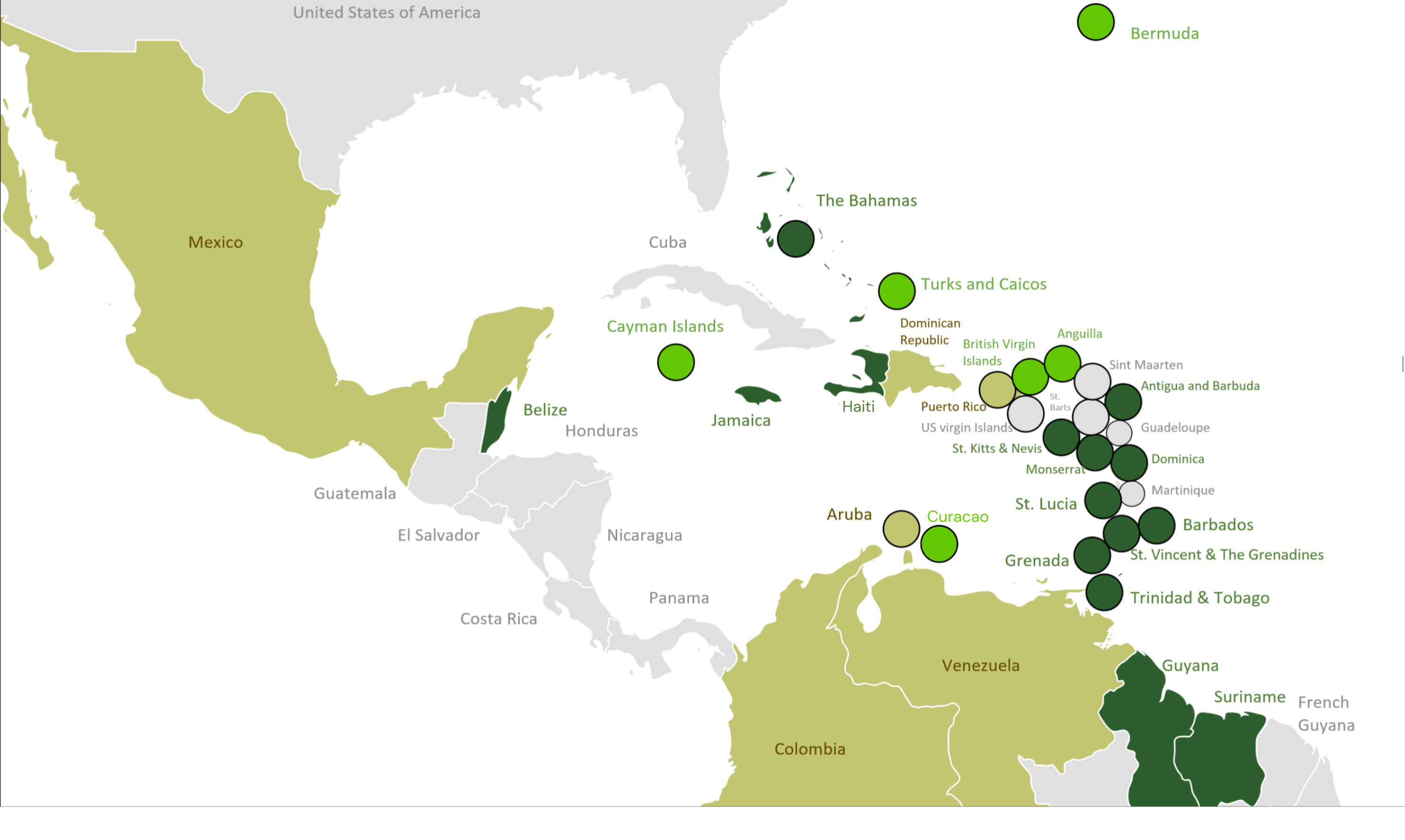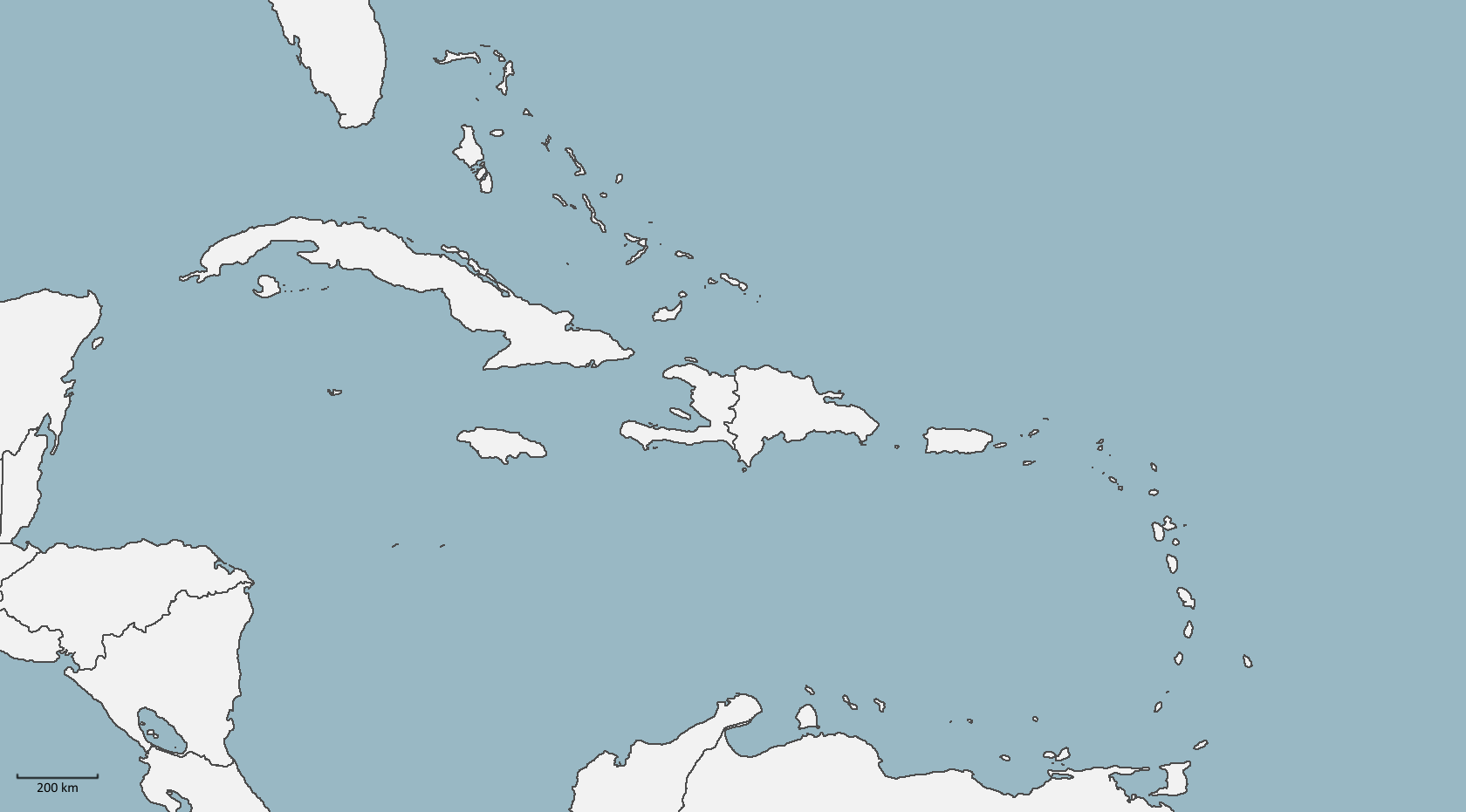Tucked away in the sparkling waters of the Eastern Caribbean, British Overseas Territories offer a unique blend of natural beauty, rich history, and a touch of British charm. These territories, though small in size, hold immense cultural and ecological significance, making them a fascinating destination for travelers and a key part of the UK’s global presence.
You’ll find pristine beaches, vibrant marine life, and lush landscapes that make these islands a tropical paradise. Beyond their scenic appeal, they play an important role in preserving biodiversity and fostering sustainable development. Each territory boasts its own distinct identity, shaped by a mix of Caribbean traditions and British heritage.
Whether you’re drawn by their stunning vistas or intrigued by their geopolitical importance, these territories offer much more than meets the eye. They’re a testament to the enduring connection between the UK and the Caribbean, blending the best of both worlds in one captivating region.
An Overview of British Overseas Territories in the Eastern Caribbean
The British Overseas Territories (BOT) in the Eastern Caribbean include Anguilla, Montserrat, and the Turks and Caicos Islands. These territories represent a blend of Caribbean culture and enduring ties to the United Kingdom, offering unique insights into their shared history, governance, and regional role.
Historical Background of British Overseas Territories

The Colonial Legacy in the Eastern Caribbean
The Eastern Caribbean’s British Overseas Territories emerged during European colonization. Anguilla and Montserrat were established as plantations during the 17th century, serving as integral components of the British Caribbean system. Despite the decline of the plantation economy, British influence remained entrenched in administrative systems and cultural practices. Colonial policies shaped legal frameworks and trade networks, which still impact these territories today.
Transition from Colonies to Overseas Territories
The evolution from colonies to BOTs occurred mid-20th century after decolonization efforts. Montserrat gained BOT status under the 1962 West Indies Act, while Anguilla transitioned in 1980 following separation from St. Kitts and Nevis. Turks and Caicos Islands became a BOT in 1973, aligning their governance with modern democratic principles but retaining UK oversight in key areas like defense and foreign affairs.
Key Milestones in Their Governance
The 2002 UK Overseas Territories Act granted British citizenship to BOT residents. Participating governance frameworks evolved, allowing self-governance in domestic affairs. Territories like Turks and Caicos benefit from constitutional arrangements that enable elected councils while maintaining a UK-appointed governor. These adaptations reflect a balance between local autonomy and UK responsibilities, such as economic support and emergency response.
Contributions and Privileges within CARICOM
Most British Overseas Territories, including Anguilla and Turks and Caicos, hold status as CARICOM associate members. This affiliation facilitates economic and technical cooperation, particularly in tourism and trade policy. Montserrat, as a full member, accesses broader CARICOM benefits, such as participation in the CARICOM Single Market and Economy (CSME). However, limitations exist for associate members concerning policy development and voting rights, ensuring distinctions in privileges.
British Overseas Territories in the Eastern Caribbean

The British Overseas Territories (BOT) in the Eastern Caribbean include Turks and Caicos, Anguilla, and Montserrat. Each territory exemplifies the blend of British Caribbean history and vibrant local culture. Their association with the Caribbean Community (CARICOM) varies, with Montserrat being a full member and the others holding associate memberships.
Turks and Caicos
Turks and Caicos features 40 islands, with eight inhabited, known for their coral reefs, luxury tourism, and salt industry heritage. British influence is evident in its BOT governance model, where local authority handles domestic affairs, and the UK oversees defense and foreign relations.
While Turks and Caicos serve as an associate member of CARICOM, its participation lies in fostering trade discussions and regional cooperation. As an associate member, the territory does not contribute to voting on CARICOM decisions but engages in economic dialogues that promote tourism and sustainable development. The islands’ marine biodiversity and pristine beaches further enhance their position as a key BOT in the region.
Anguilla
Anguilla, the smallest of these Caribbean territories, is celebrated for its white-sand beaches, clear waters, and vibrant maritime history. BOT governance structures provide autonomy in legislative and financial matters while the UK retains authority over security and foreign policy.
As an associate CARICOM member, Anguilla benefits from regional dialogues on health, education, and economic growth. Its contributions focus on niche areas like cultural exchange and maritime development while being excluded from decision-making processes reserved for full members. Anguilla’s compact geography amplifies its appeal as a tourism hub rooted in British Caribbean history.
Montserrat
Montserrat, nicknamed the “Emerald Isle of the Caribbean,” is famed for its lush landscapes and active Soufrière Hills volcano. Its BOT governance combines local legislative control with UK oversight in defense, citizenship, and international relations.
Unlike its counterparts, Montserrat enjoys full CARICOM membership, allowing it to shape policies and participate in voting processes. It contributes by advancing regional disaster preparedness and economic resilience strategies. Montserrat leverages its volcanic history and ecotourism potential to strengthen its standing within CARICOM and beyond.
Governance and Political Structure

British Overseas Territories (BOTs) in the Eastern Caribbean, including Montserrat, Anguilla, and Turks and Caicos, have distinct governance structures shaped by their historical ties with the UK and their Caribbean setting. Their governance integrates UK oversight with varying levels of autonomy.
The Role of the British Government in BOT Governance
The British government exercises responsibility for defense, international affairs, and internal security across Caribbean territories. It appoints Governors to represent the Crown and oversee compliance with constitutional frameworks. Governors in Montserrat, Anguilla, and Turks and Caicos ensure that local laws align with UK obligations.
UK support often extends to disaster recovery and economic stability, particularly in territories like Montserrat that encountered volcanic disruptions. The UK also provides financial aid to maintain sustainable development. BOT governance reflects a balance where local governments manage day-to-day matters, but the UK addresses strategic issues.
Autonomy and Self-Governance in the Territories
BOTs enjoy self-governance in domestic matters, particularly in Anguilla and Turks and Caicos, which operate under locally elected governments. Legislatures craft policies on healthcare, education, and infrastructure. Democratically elected representatives enable these territories to maintain their unique identities within the region.
Montserrat demonstrates a more integrated structure because of its full CARICOM membership. It directly participates in regional decisions, ensuring that its self-governance aligns with broader Caribbean interests. Conversely, UK intervention is limited to constitutional roles and oversight of key responsibilities.
Economic and Social Policies Shaped by Their Status
As BOTs, Montserrat, Anguilla, and Turks and Caicos receive economic support from the UK while leveraging local industries like tourism and fisheries. Turks and Caicos thrives on luxury tourism, creating funding for social infrastructure. Anguilla uses its pristine beaches to boost its economy, while Montserrat rebuilds post-volcanic damage with UK assistance.
Anguilla and Turks and Caicos, as CARICOM associate members, benefit from regional economic cooperation but lack voting power in policymaking. Montserrat’s full membership fosters contributions to Caribbean disaster resilience programs and shared economic strategies. These policies illustrate the intertwined nature of their British Caribbean history and modern BOT governance.
Contribution to CARICOM as Associate Members

Anguilla and the Turks and Caicos Islands are British Overseas Territories (BOTs) in the Eastern Caribbean that engage with the Caribbean Community (CARICOM) as associate members. Their status allows them to contribute to regional cooperation while maintaining unique ties with the UK. Montserrat holds a distinct position as a full member.
Privileges of CARICOM Associate Membership
Associate membership in CARICOM provides Anguilla and the Turks and Caicos Islands with access to regional economic and social initiatives. They participate in decision-making forums, though they lack voting rights in policymaking. This status facilitates collaboration on disaster preparedness, climate change adaptation, and trade.
Being associate members ensures representation for BOTs in specialized bodies like the Council for Trade and Economic Development (COTED). It also enables access to key support mechanisms, such as the Caribbean Disaster Emergency Management Agency (CDEMA). For example, the collaboration during hurricane relief highlights the integration of British Caribbean territories in CARICOM’s regional framework without compromising their BOT governance under UK oversight.
Montserrat’s Unique Status as a Full Member
Montserrat, unlike Anguilla and the Turks and Caicos, holds full membership in CARICOM. This status grants Montserrat voting rights in policymaking and greater participation in shaping regional strategies. As a full member, Montserrat contributes actively to the CARICOM Single Market and Economy (CSME) initiatives, supporting free movement of goods, services, and people.
Montserrat’s full membership amplifies its role in regional sustainable development and disaster resilience. Its volcanic experiences have positioned it as a key player within CDEMA, sharing expertise in recovery and risk management. Additionally, Montserrat leverages its Caribbean identity through CARICOM memberships to strengthen economic recovery efforts and maintain regional integration while preserving its BOT governance structure.
Collaborative Initiatives Between BOTs and CARICOM
Collaboration between BOTs and CARICOM is evident in joint environmental and socio-economic programs. For instance, Anguilla and the Turks and Caicos work with CARICOM agencies to address climate change impacts, focusing on coastal erosion and hurricane recovery. Regional mechanisms support these territories in adopting sustainable tourism practices and marine resource management.
CARICOM emphasizes economic cooperation, with associate members like Anguilla and the Turks and Caicos contributing through specific sectoral projects. Montserrat’s full membership extends engagement, fostering integration in education, health, and trade. These initiatives allow British Overseas Territories to align with CARICOM priorities while retaining distinctive governance features tied to British Caribbean history.
Current Status and Future Prospects

Economic Challenges and Opportunities
Caribbean territories like Montserrat, Anguilla, and the Turks and Caicos Islands rely heavily on tourism and natural resources to sustain their economies. Montserrat faces unique challenges due to volcanic activity, necessitating continuous UK support to rebuild its infrastructure and diversify its economy. Anguilla and Turks and Caicos, while economically stable, depend significantly on luxury tourism and fisheries to drive growth. However, global economic shifts, climate-related disruptions, and limited natural resources pose barriers to sustainable development.
Geographic location offers opportunities for trade and tourism. Proximity to major regional markets allows these BOTs to capitalize on increasing demand for eco-tourism and niche tourism experiences. For example, Anguilla’s pristine beaches attract high-end tourists, whereas Turks and Caicos has positioned itself as a luxury destination. Regional cooperation through CARICOM further unlocks access to initiatives supporting disaster recovery, climate resilience, and regional trade collaboration.
Geopolitical Significance in the Eastern Caribbean
The BOTs, embedded in British Caribbean history, serve as strategic geopolitical points in the Eastern Caribbean. UK oversight in defense and international affairs enhances regional stability. For instance, their locations strengthen maritime security and provide staging points for international disaster relief efforts, particularly relevant given their susceptibility to hurricanes.
Montserrat’s full CARICOM membership plays a critical role in regional policymaking. Its active contributions to strategies for disaster resilience and sustainable development demonstrate the geopolitical value of strengthened regional alliances. Unlike Montserrat, Turks and Caicos and Anguilla, as associate CARICOM members, maintain collaborative ties without voting power, enabling cooperation on economic, social, and environmental initiatives. Their unique statuses ensure both UK alignment and regional integration.
The Path Ahead for British Overseas Territories
BOT governance structures ensure a balance between self-rule and UK oversight in core areas like defense and security, but the path ahead depends on adaptability to evolving global trends. Economic diversification remains essential—Montserrat focuses on reconstruction with UK backing, while Turks and Caicos explores green energy and high-value tourism projects. Anguilla is also leveraging international partnerships to protect its marine ecosystems and expand sustainable tourism.
Collaborative initiatives with CARICOM will increasingly shape their futures. Full members like Montserrat will likely continue asserting influence in regional policies, while associate members prioritize shared goals like climate change adaptation and cross-border economic development. Strengthening ties with both the UK and CARICOM ensures stability and long-term growth for these territories.
Conclusion

The British Overseas Territories in the Eastern Caribbean offer a fascinating blend of natural beauty, cultural richness, and historical depth. These islands stand as testaments to the enduring connection between the UK and the Caribbean, navigating modern challenges while preserving their unique identities.
As you explore their pristine beaches, vibrant ecosystems, and evolving governance, you’ll discover how these territories balance tradition and progress. Their future depends on sustainable development, regional collaboration, and adaptability to global changes, ensuring they remain vibrant and resilient for generations to come.



































